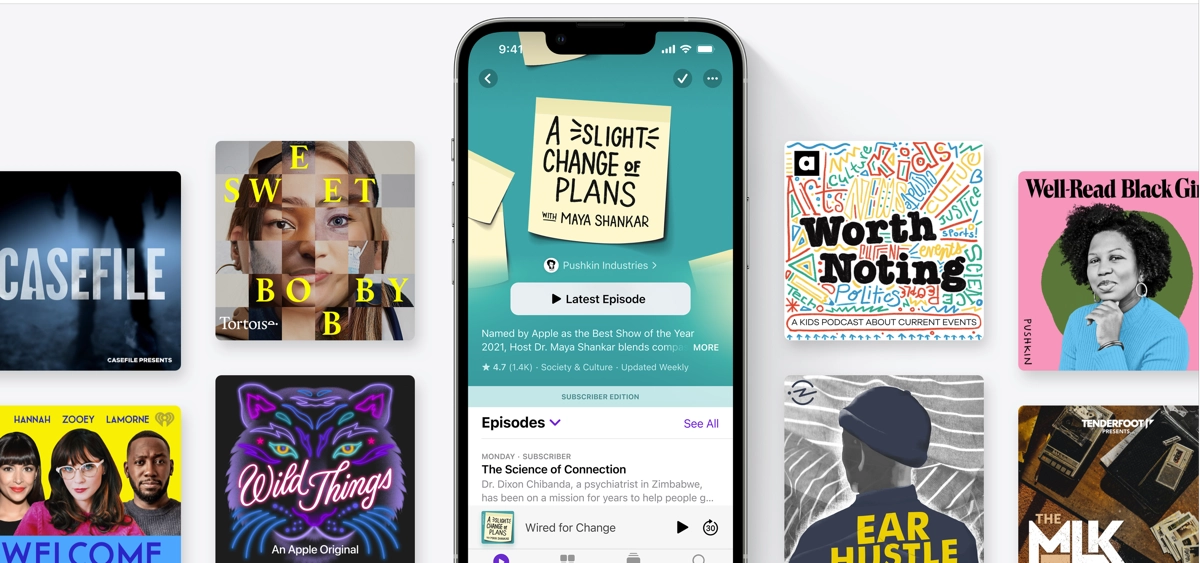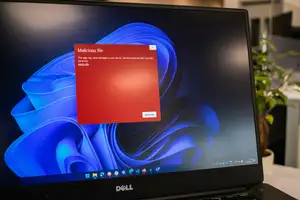
Google and Apple Want to Change How You Listen to Podcasts
Apple and Google are making several huge steps to change how people listen to podcasts on their flagship apps. Here are a few things we will be covering: Apple is working towards integrating its audio apps, the Google Podcasts service is dead, having been beaten by YouTube Music, and Spotify recently unveiled a new AI tool for podcasters.
Apple Podcasts aims to be more than just a simple podcast app
A specific type of person tends to prefer consuming podcasts on their favorite podcasts app, learning new languages on their language apps, and meditating on their meditation apps, the list goes on. The strategic goal for Apple is to try to get users to listen to their favorite content using the Apple podcasts app instead of using multiple apps for various reasons.
It looks as though Apple Podcasts could one day become a single destination for pretty much everything that's released to premium non-music audio content.
In light of the latest iOS 17 update, a recently invigorated Apple Podcasts was unveiled just last week that has the ability to link third-party subscriptions to a broad range of news and lifestyle apps, some of which include The Economist, Sleep Cycle, Bloomberg, and Curio, to name a few. Anyone who is subscribed to the kids' education app Lingokids, the mediation app Calm, Apple News Plus, or Apple Music will soon be able to listen to their original audio via the Apple Podcasts app.
The final goal is for Apple Podcasts to look less like the basic podcast player that it was throughout the 2010s and appear far more like Spotify. Your favorite podcasts will remain the center of attention, but you will begin to notice changes and the expansion of how audio content is delivered on the app.
A lot of a subscriber's content from third-party apps should automatically show up, or they will have the option to manually link any subscriptions they have on Apple Podcasts' apps channel page. The new feature expands upon the company's 2021 move from paid podcast subscriptions to Apple Podcasts. However, paid audiobooks are likely to stay in Apple Books.
As soon as they enable users to connect top apps to subscriptions, Apple Podcasts will immediately become the superior way for listeners to access and unlock a world of premium audio content at their fingertips. This will include podcasts, radio shows, guided mediations, education courses, news briefs, sleep sounds, narrated articles, and full music, all in the same place.
The company's determined effort to venture into additional types of audio programming shows that Apple has a unique perspective of podcast consumers than almost anyone else in the industry. One of their views, which is supported by survey data, is that if listeners would rather have a single app for listening to podcasts, the leaders in this field either don't believe it matters or simply do not share the view.
The main objective for Apple and other similar companies, like Spotify and Amazon, is for consumers to spend as much time as possible using their apps. Companies like Apple, which has a monopoly on the software used to listen to audio content and the hardware used to house the software, says one of its other objectives is to make it so consumers to no longer separate the two.
With that in mind, subscribers can gain access to third-party content from Apple Podcasts using Apple-powered devices and not just their iPhones. Examples include Apple Mac, iPad, Apple Watch, HomePod, and CarPlay. The user will be able to choose their preferred audio programming on demand at any time of the day and from almost any location on the planet. What may end up happening is that the specific mode of distribution could become irrelevant for certain listeners.
Let's take a look at a quick example. During a journey by car from New York to Chicago, my wife, who accompanied me on the journey, played a ten-part podcast for me to listen to on the Future of Artificial Intelligence. To play the podcast, she chose to switch on Car Mode on the Audible app on her phone, which is a victory for Amazon.
The idea that most people view Audible as merely an audiobook app (which it's clearly not) is redundant. Similarly, she could have played the same podcasts for me on Apple Podcasts, Spotify, or other players with car mode capabilities. It wouldn't have had any effects on our listening experience whatsoever.
For audio streaming companies like Apple, pursuing as many avenues of audio content supply services as possible is the best way to ensure they keep hold of as many unpredictable subscribers as possible (and hopefully acquire a larger following of new subscribers in the process).
For a long time now, there has been a blurred line between regular podcasts and the many other new forms of audio content that are now available. The latest changes to Apple Podcasts may have eliminated that blurry line for a specific type of audio consumer. When Apple initially launched its standalone podcasts app over ten years ago (2022), it was more of a vibrant directory of RSS feeds. It was the ideal location purely for podcasts, an independent entity of iTunes, enabling users to access their podcasts while out and about.
However, over time, the incredible volume of audio-only programming that rapidly became available, which the average consumer now has access to, is enormous, having increased dramatically in just the past ten years alone – to such an extent that bringing them all together under one roof seems the most obvious next step.
YouTube Music effectively kills Google Podcasts
Earlier this week, YouTube revealed that it will be phasing out Google Podcasts for good and that more attention will now be focused on making YouTube Music the go-to place for podcasts. Google Podcasts will likely be discontinued as early as next year.
According to a recent official YouTube Music blog post, they will be assisting users switch from Google Podcasts to YouTube Music during the process of axing Podcasts once and for all. The move is in line with what the current listeners are already doing. For example, Edison recently revealed that only around 4% of weekly US podcasters say Google Podcasts is the preferred service they visit the most, compared to 23% who say YouTube Music is their most frequently used service.
The first signs of the impending discontinuation of the service came in January when Google Podcasts embeds were removed from search results. However, at the time, Steve McLendon, the Google Podcasts product lead, and Kai Chuck, YouTube's podcast lead, suggested that Google Podcasts wouldn't be going anywhere anytime soon when speaking at a Hot Pod Summit the following month.
They pointed out that the two products are completely different and appeal to different users in many ways. Google Podcasts is seen more as a traditional RSS podcaster, and YouTube isn't.
Later in the year, YouTube openly declared at Podcast Movement that it would support RSS before the year was out. From this moment, Google Podcasts will no longer serve a purpose. The blog post released in August also highlighted that a migration tool would also be introduced to help smooth the transition for users from Google Podcasts to YouTube.
Some have said that it's a sensible move to consolidate users from the two separate services, but also stated that the 4% of weekly US podcasters who say Google Podcasts is their most frequently used service, compared to the 23% who say YouTube Music is their most frequently used service is slightly misleading.
It does, however, agree that YouTube is the dominant podcast streaming service, as frequent studies have continued to reveal. This is different completely different from YouTube Music. There is a concerted effort to try and entice podcast listeners over to YouTube Music, where there's a good possibility some of them will end up signing up for the service via a paid subscription.
The strategy seems to be a good one, but the company will have to invest in the product if it aims to stop users from simply typing in the name of a podcast into their Google search engine and then listening to it on the standard ad-supported YouTube platform.
Podcast voice translation is now a possibility thanks to a new partnership between Spotify and OpenAI
Audio, digital music, podcast, and video service provider Spotify recently announced it has been testing an innovative voice translation feature that will reproduce English-language podcasts in German, French, Spanish, and other languages at some point in the coming years. Spotify has pioneered a unique tool incorporating OpenAI's Whisper model to translate audio content from one language to the next.
Some people haven't been quick to warm to the idea of Spotify teaming up with OpenAI in this way, whereas others have embraced the idea and think it's a step in the right direction. If you're multi-lingual and fluent in some of these languages, don't forget to check out some of Spotify's AI-translated audio content to see what you think.









